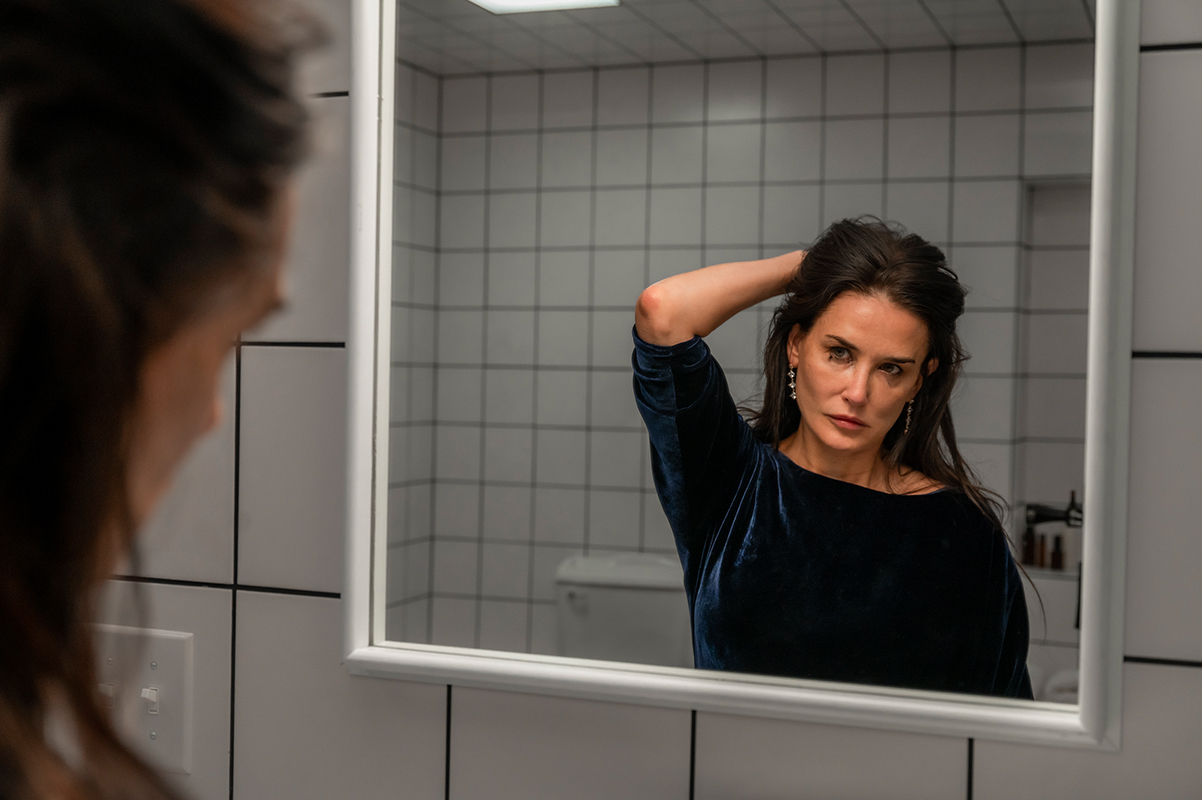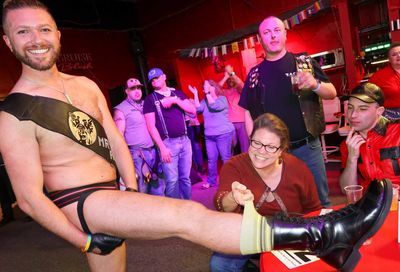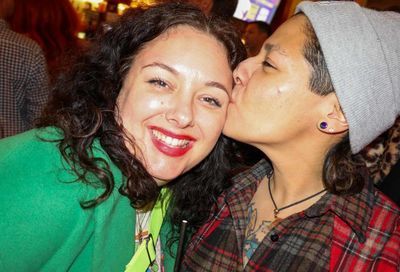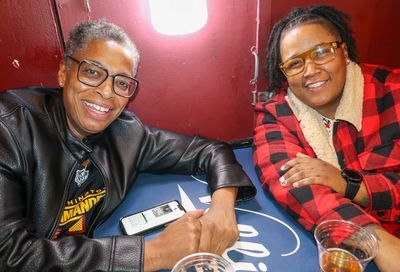‘Queer’ Has Atmosphere and Sex but Little Else
Luca Guadagnino’s sultry, surrealist "Queer" intrigues and arouses, but just misses the spot.

“Was that a happy ending?” A pertinent question, posed by another critic as the credits rolled on Queer. There are loads of happy endings in the film. But the final one? It’s serene, and full of mystery and longing, like much of this horny fever dream, based on the novel by Beat hero, and notorious hophead, William S. Burroughs.
Burroughs originally wrote Queer in the 1950s, as an extension of his semi-autobiographical novel Junky, but didn’t publish the daringly gay manuscript until 1985.
For the film, director Luca Guadagnino (Call Me By Your Name, Challengers) echoes the literary displacement in time with the slyly anachronistic soundtrack of Nirvana and Prince tracks scoring the ’50s-era drama of mostly American expatriates dissipating decadently in a desolate yet lively Mexico City.
Daniel Craig, in full pout and perspiring profusely, is suitably despairing as Burroughs surrogate William Lee, a writer of enough means to easily afford all his vices. That includes the younger men he’s constantly thirsting for among the bars and cafes he haunts alongside fellow middle-aged queer gents.
Or queer slobs, in the case of Lee’s closest compadre Joe, another writer, portrayed with zeal, prosthetic chubbiness, and comically horrible hygiene by Jason Schwartzman.
Joe, who’s always complaining about always getting robbed by the boys he brings home, strikes a vivid contrast in style and sex appeal to Lee’s more genteel eccentric. The canny costuming by J.W. Anderson distinguishes each of the characters clearly.
But beyond their surface differences, Lee and Joe, and their foppish frenemy Dumé (Drew Droege, an amusing queen among men), are all in the same boat: adrift in Mexico City, bereft of purpose, yearning for the next fuck or drink.
For all the sex in Queer — and there’s plenty, some of it reportedly prosthetically-assisted — the film appears only fleetingly interested in titillation. Anguished desperation is more the order of business, especially once Lee lays eyes on rosy-cheeked ex-soldier Eugene Atherton, portrayed by Netflix’s Outer Banks outlaw Drew Starkey.
While Craig brilliantly embodies Lee’s mounting obsession with Eugene, Starkey doesn’t invest the guy’s aura with much beyond his blushing beauty and obstinate obscureness. Is Eugene really into Lee? Is he even really queer? He might be just an opportunist, like so many floating around this postwar way station. A dull object of desire, Eugene lacks the spark of curiosity, and Lee’s pursuit of him provides a fairly thin narrative.
Guadagnino compensates greatly with atmosphere dripping in sweaty languor. From the costumes, to the decor of Lee’s apartment, to the bright afternoon sunlight on a dewy glass of rum and coke, the movie beautifully details the sense of time just hanging there.
Then, the film perks up with a third act detour further south to Ecuador, and into the jungle, where Lee’s pursuits turn to mysticism and mental telepathy. Lesley Manville, even more extravagantly transformed by hair and makeup than Schwartzman, unfurls the wacky and wise Dr. Cotter, a researcher who seems to have vaulted off the deep end but might still hold answers that soothe Lee’s obsessions.
Cotter clocks Lee as an addict almost immediately. Heroin, apparently, is as fundamental to Lee’s existence as sex, if not more. Guadagnino and cinematographer Sayombhu Mukdeeprom capture drug addiction as a way of life with stark clarity in a long take of Lee shooting up, and with forlorn romance in the psychedelic visions that levitate him out of his body, and closer to his deepest desires. Or is it further away?
“What else could I write?/I don’t have the right/What else should I be?/All apologies,” sings Nirvana’s Kurt Cobain, an incongruous patron saint for those seeking happy endings.
Queer (★★★☆☆) is playing in theaters nationwide. Visit www.fandango.com.
Support Metro Weekly’s Journalism
These are challenging times for news organizations. And yet it’s crucial we stay active and provide vital resources and information to both our local readers and the world. So won’t you please take a moment and consider supporting Metro Weekly with a membership? For as little as $5 a month, you can help ensure Metro Weekly magazine and MetroWeekly.com remain free, viable resources as we provide the best, most diverse, culturally-resonant LGBTQ coverage in both the D.C. region and around the world. Memberships come with exclusive perks and discounts, your own personal digital delivery of each week’s magazine (and an archive), access to our Member's Lounge when it launches this fall, and exclusive members-only items like Metro Weekly Membership Mugs and Tote Bags! Check out all our membership levels here and please join us today!




















You must be logged in to post a comment.